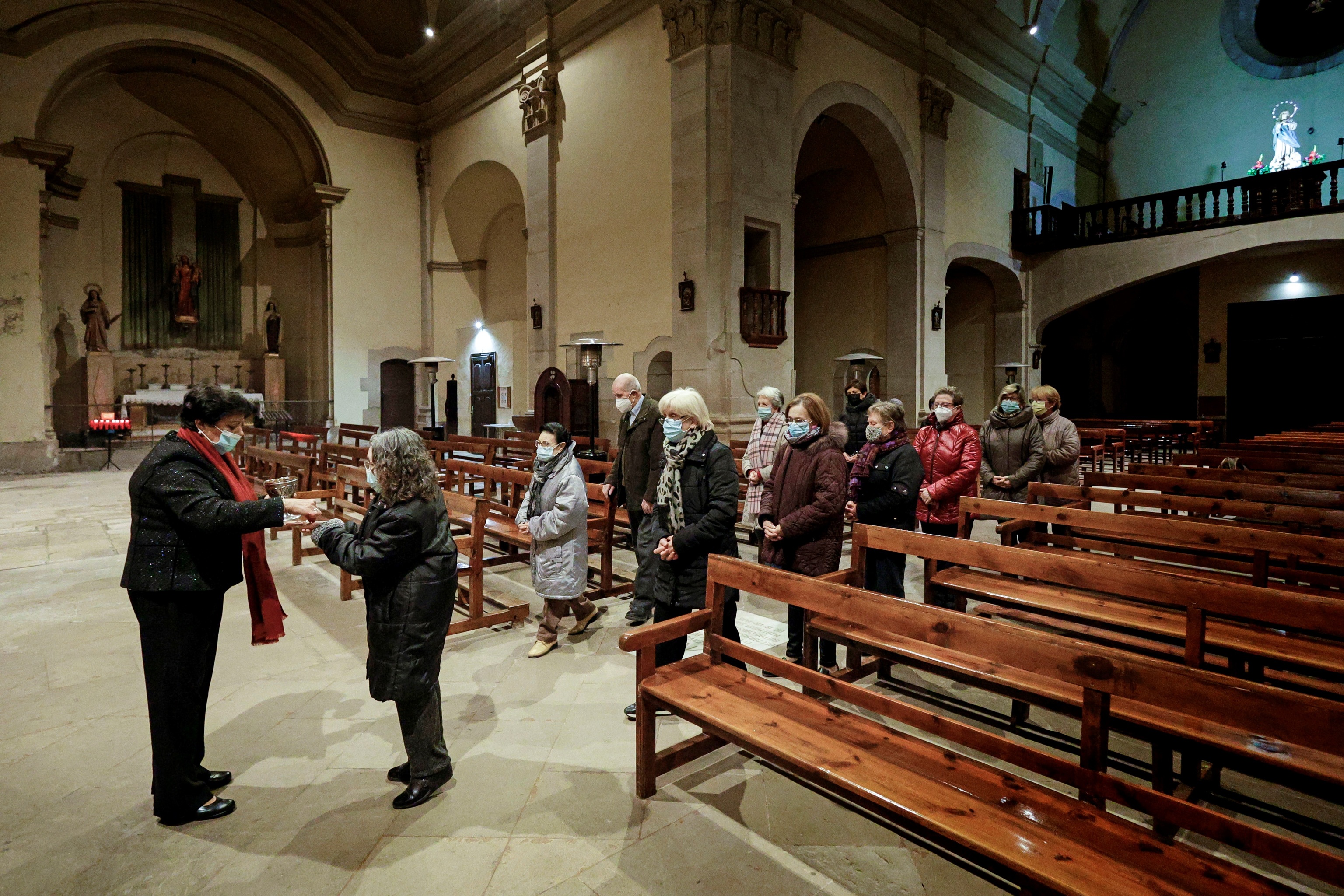Six women, recognized as
"lay people on a pastoral mission"
, perform "substitutions" in the absence of enough ordained priests to provide religious service in all the towns of Catalonia and lead liturgical celebrations with previously blessed communions so that no one is left without mass.
They are Concepción, Rosa María, Núria, Montserrat, Rosa and Lola, who have the recognition of the Archbishopric of Tarragona, which has made it easier for them to carry out the task and highlights their value and the opportunity they represent to "make the work of women in the Church.
They share responsibilities with the few priests who serve in the archpriesthoods of Penedès, Urgell-Garrigues, Tarragona-Llevant, Priorat and Baix Camp, some geographically in Lleida, although they belong to the archbishopric of Tarragona.
"It was the lack of rectors that led us to discover the charism of laywomen within the Church. Although the figure grew due to that lack, and although now enough ordained priests suddenly arrived, they would not be left out," he explains. The spokesman for the archbishopric of Tarragona, Simó Gras, told Efe.
Most of these women have spent half their lives dedicated to a greater or lesser extent to "assisting" their parishes, accompanying the sick, managing catechesis or going to residences, but for some time now they have been gaining weight also from the pulpit as the number of ordinands available diminished, a function that they recognize years ago was seen with "reluctance" by some parishioners because they are women, although today "everyone lives it normally", Rosa Maria Sànchez comments to Eph.
"People appreciate being able to go to a liturgical celebration in their town and regularly. If the two parish priests had to come, it would not be possible," he adds.
"Readings from the word of God"
He makes it clear that they do not consider that what they do is "mass" itself, but "readings of the word of God", although he recognizes that the important thing for believers who come to the parish is to
pray in community
beyond labels.
Concepción Motlló, the most active in these functions, divides up the liturgies of Arbeca and nearby towns with the parish priest of the area.
"On Saturday I do Arbeca and he does Els Omellons and on Sunday the other way around. We also organize ourselves like this to assist other towns. We take turns and so there can be service everywhere."
Half a dozen parishioners attend the reading celebration this Saturday in the Lleida town of Arbeca, known for the Arbequina olive, despite the fact that at 7:00 p.m. the darkness and cold of the silent town are not the greatest incentive to go out From home.
Concepción, who leads the celebration of the word and delivers the communions previously blessed by the priest, explains to Efe after the celebration that they have been preparing for years to take on these tasks and that it is not a problem for those who go to church, in mostly also women.
Rosa María also highlights that the
parishioners
see a woman in the pulpit very naturally and reflects on whether normalizing it with women ordainers, in the absence of enough male parish priests, would not be a solution to be valued.
Concepción, in full liturgy.Q GARCÍAEFE
For her, "the Church has two major pending issues that, in addition, would bring younger people closer: on the one hand, ordaining women priests and, on the other, that celibacy is not mandatory but voluntary."
For Concepción, it is not so important to be ordained, since she says she is "happy" leading the liturgy.
"I don't need more recognition than being able to do what I love. In addition, before man there are differences between people, but before God we are all exactly the same," he says.
Such is her devotion to helping the parish that she has combined it over the years with her work as a seamstress and raising three children and six grandchildren.
"Sometimes I had no one to leave the grandchildren with and I have brought them with me to the parish because I had to celebrate," he says.
More common in Africa and Latin America
From the archbishopric of Tarragona they explain that in other places, and particularly in missions, in Africa and Latin America, the figure of lay women who direct religious services is more common, while in Spain and even more so in the most populated areas it is somewhat less frequent. .
His spokesman adds that, however, the archbishopric does not read the matter in terms of convenience or not of ordaining women, and that they value in any case that "these people do an extraordinary service and naturally in the communities people receive it very well ".
Conforms to The Trust Project criteria
Know more
Catalonia
Tarragona
Africa
Spain
lleida
Religion
CataloniaThe Pope closes the Solsona crisis with a Valencian bishop and a snub to the nationalist sector of the "Catalan Church"
Forecast Waves, wind, snow and rain today put 14 Autonomous Communities at risk, with a notable drop in temperatures
CataloniaSocietat Civil Catalana renews its management and seeks to penetrate the key fiefdoms of separatism
See links of interest
Last News
Work calendar 2022
Home THE WORLD today
How to do
Check Christmas Lottery 2021
Check Child's Lottery
Salernitana - Lazio
Sporting Gijon - Cadiz
Girona - Vallecano Ray
Aston Villa - Manchester United
Borussia Monchengladbach - Bayer 04 Leverkusen

